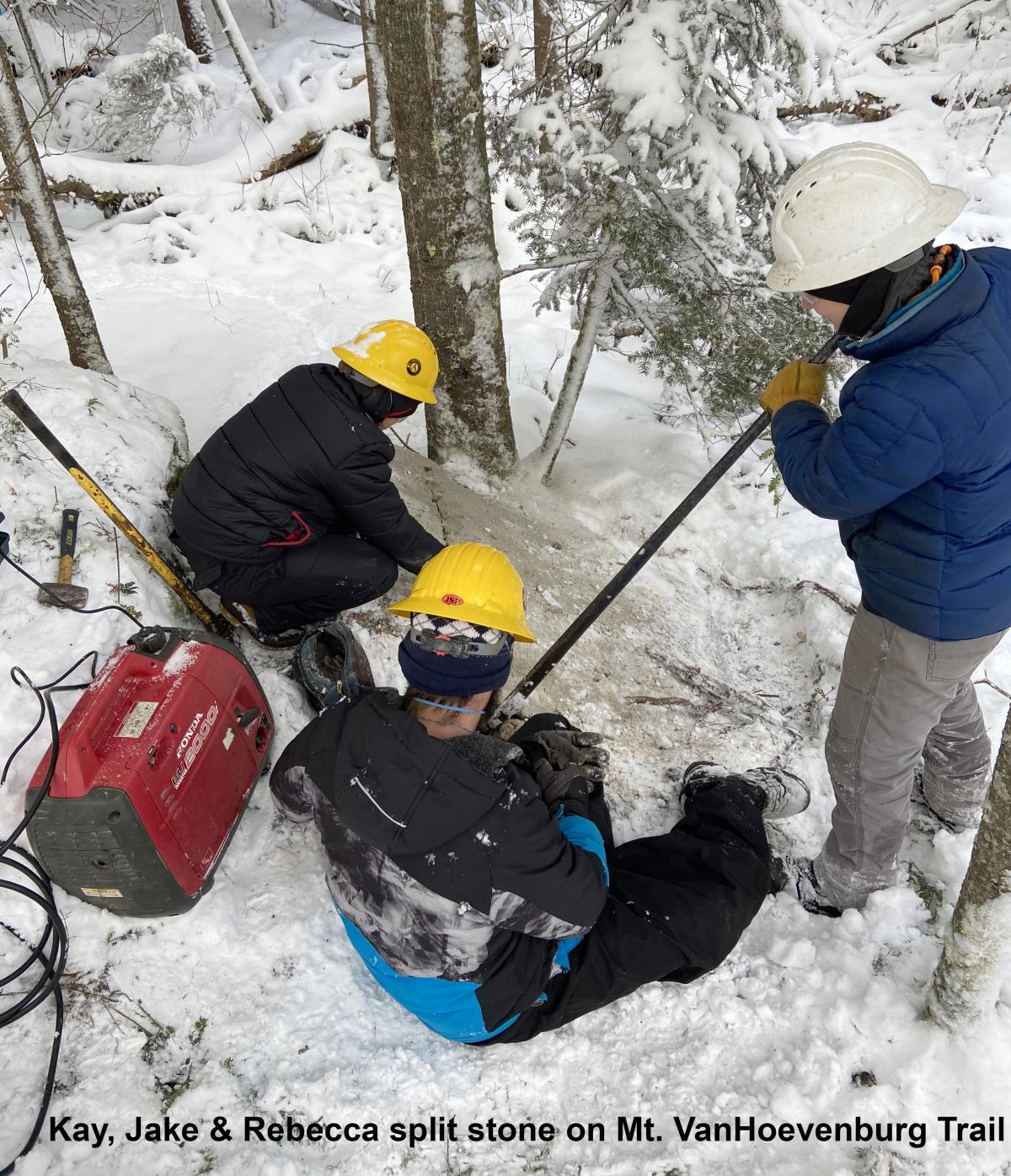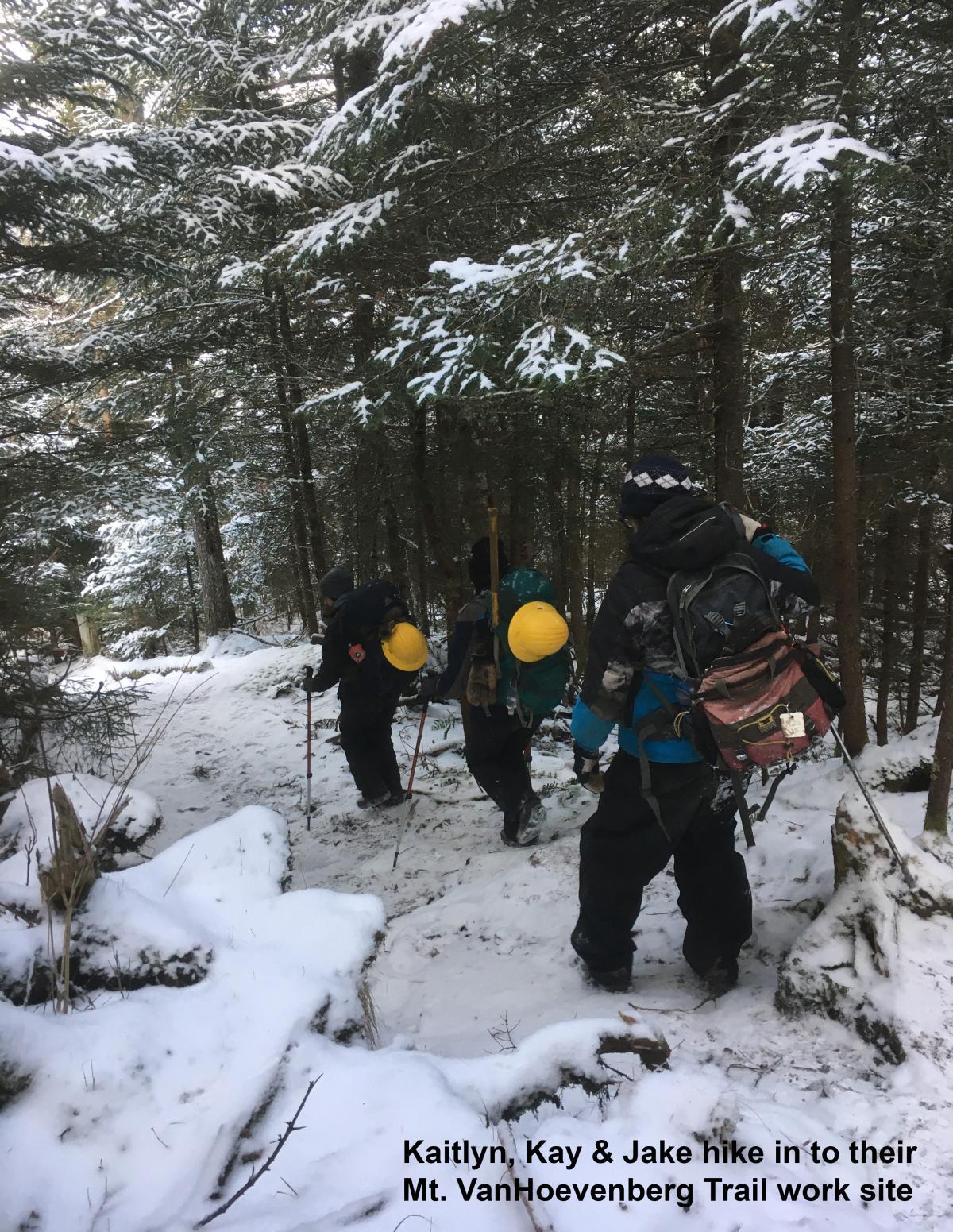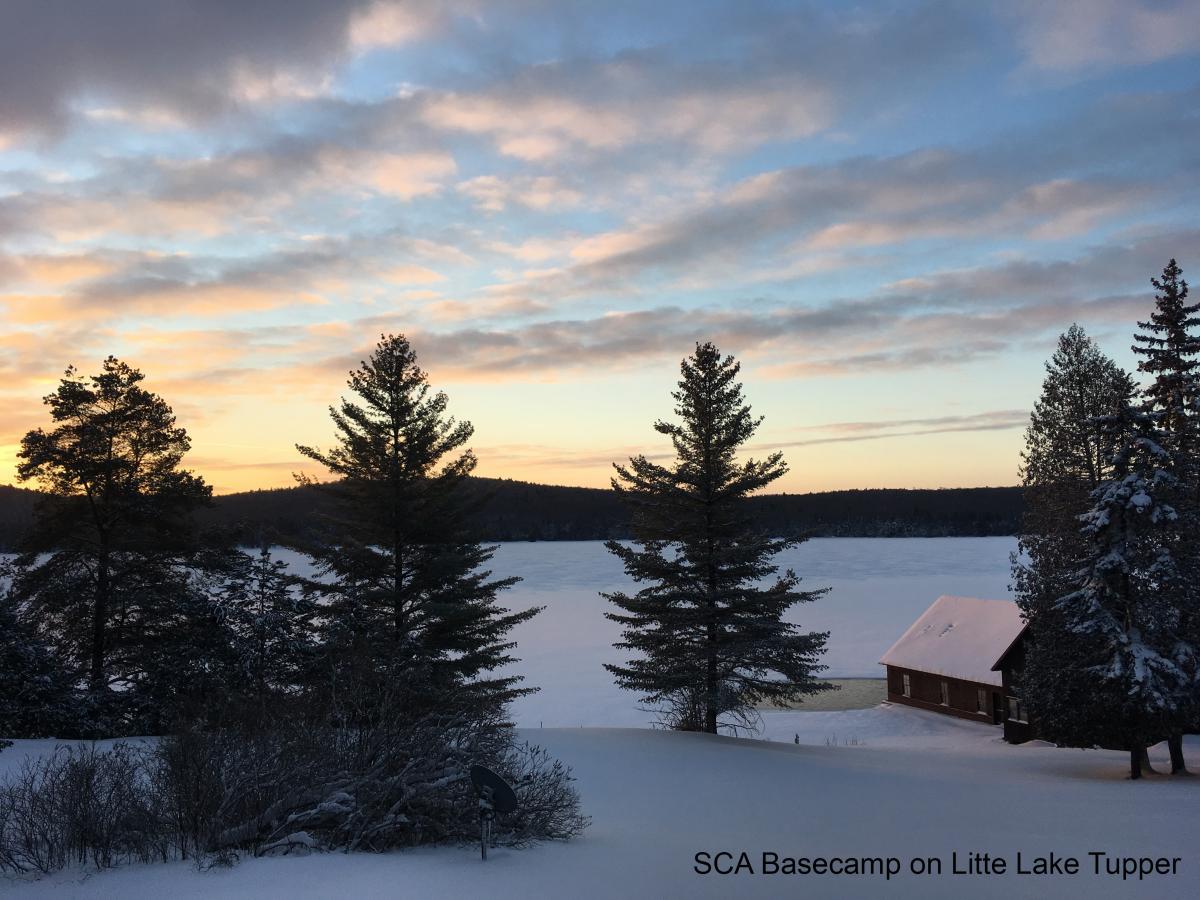This is our second in a series of SCA winter project profiles.
In recent years, SCA’s long-running summer-fall Adirondack Corps has added a smaller winter program in the William C. Whitney Wilderness, in cooperation with the New York State Department of Environmental Conservation and AmeriCorps. We spoke with Program Coordinator Rebecca Kambic and corps members Kay Emery, Kaitlyn Gunter, Jake Westrich about the season ahead.
SCA: What sort of projects do you have lined up for this winter?
Rebecca: Typically, we complete traditional trail projects such as stonework, carpentry, etc. until conditions become too unfavorable (i.e.: frozen ground, too much snow.) This year, the snow has largely held off, so we are currently working on quarrying stone for next year’s projects on the Mt. VanHoevenberg trail in the Adirondack High Peaks.
SCA: Do you typically roam or stay close to home during winter?
Rebecca: We occasionally stay at different locations. However, due to policies surrounding Covid-19, we will likely work mostly from our basecamp this winter. Whitney is located roughly in the center of the park. From there we might commute an hour to a trailhead and spend the day on the trail, or we might stay on-site constructing privies and completing other carpentry projects.

SCA: What’s the best part of working outdoors in winter? What’s the worst part?
Rebecca: The most challenging part is the cold. It is always present. Working outdoors for eight or 10 hours in zero degree temps, and carrying metal tools or icy stones, takes as much mental stamina as physical. The best part is that we get to watch the snow accumulate on the mountains, incredible winter sunrises and sunsets, and the snowfleas jumping around as we roll a rock through our worksite.
Kaitlyn: I have always loved the Adirondacks and find the winter months to be where it shines. I didn’t ever expect to live in such an amazing and remote area. Bearing with the cold weather is well worth it.
Kay: This place has changed my life for the better and I’m happy to suffer cold temperatures and a perpetually runny nose to give back to it and continue to learn about and serve the environment.
SCA: What skills do you hope to gain and add to your resume?
Jake: Technically, I can already put GOL chainsaw certification on my resume, but I’m hoping that I’ll be able to back it up with further experience felling trees, snags, and blowdowns. I’m hoping to add winter work experience in general so that other winter postings will consider accepting me.
Kaitlyn: My main goal is to gain more hands-on experience in environmental conservation while gaining more knowledge along the way. I also look forward to carpentry, a skill set that would be handy in everyday life.
Kay: I’m looking to learn more about sustainability, trail work, and conservation in general. My educational background isn’t directly related to conservation or resource management, but it’s become clear to me that this is what I’m passionate about.

SCA: Where does that passion come from? What motivates you to work in these conditions?
Kay: I was very conflicted about what I wanted to do with my life when I decided to attend the University of Vermont. The majority of students and professors there are super-outdoorsy, and the friends I made at UVM were intense climbers or backpackers who were quick to drag me along on their adventures. The more time I spent outside, the more I began to think about wilderness, and the natural world’s precarious future continues to motivate me day to day.
Kaitlyn: I’ve been hearing in the news, podcasts, and articles that the outdoors – a specifically Adirondack Park and High Peaks region – is being loved to death. To preserve the Adirondacks, we need to limit our human impact. The building and use of sustainable trails along with the other tasks that SCA members do across the country is vital to bettering the way in which we interact with the environment.
Jake: I know how much I rely on good trails and how much I respect the principle of using trails, so humans curious about nature may experience it on small pathways rather than bushwhack everywhere and destroy things. Trails are sustainable and can have a profound impact on someone’s life. For these reasons, I saw fit to spend at least a small chunk of my life improving trails.

SCA: What’s basecamp like, and how will you avoid turning into Jack Nicholson in ‘The Shining’?
Rebecca: We are located about 30 minutes from the nearest town, on a state-owned property right on the shores of Little Tupper Lake, a designated wilderness lake. Winter is particularly cozy at Whitney, providing excellent skiing, ice skating, snowshoeing, and sledding. We live in cabins and spend many evenings sitting around the fireplace.
Kaitlyn: I believe we have the best living situation a person could ask for while riding out a pandemic. I haven’t seen ‘The Shining’ but considering our living situation, maybe I should finally watch that movie.
Jake (smiling): All work and no play makes Jake a dull boy…